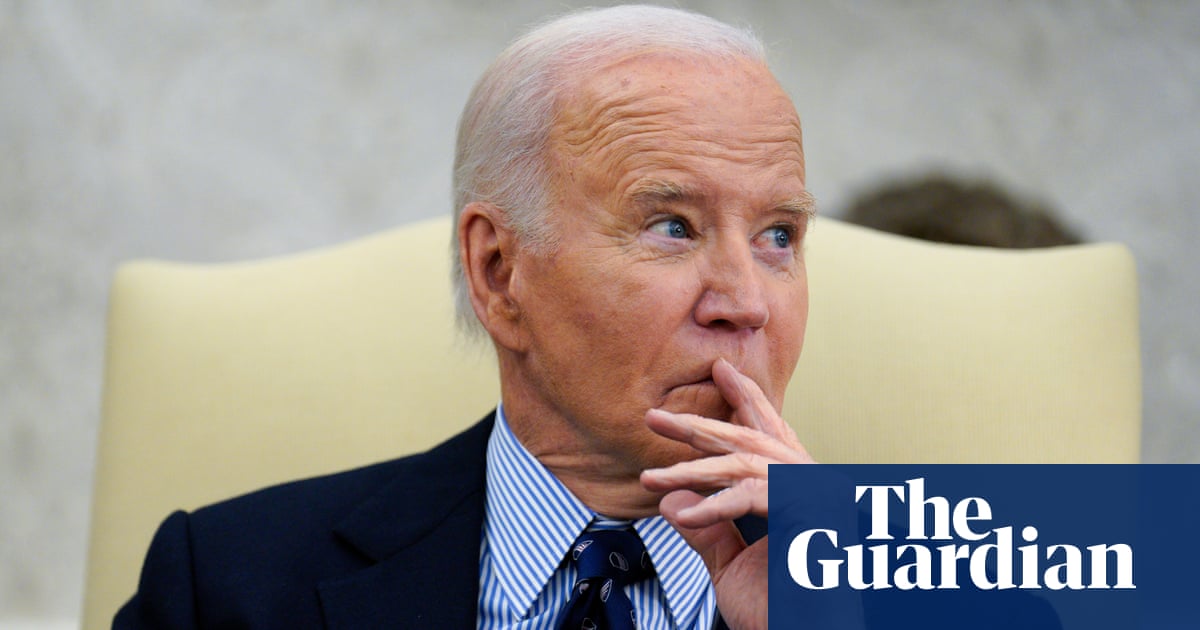Mexico’s president, Claudia Sheinbaum, has reassured her country that “there’s nothing to worry about” after Donald Trump’s stunning victory in the US presidential election.
But Trump’s extreme campaign promises have left Mexico bracing for punishing tariffs, mass migrant deportations – and even the farfetched but alarming suggestion of US military strikes on organised crime groups in Mexican territory.
Sheinbaum did not offer congratulations to Trump on Wednesday, telling reporters that it would be “prudent to wait” for the official results.
However, she added: “We are a free, independent, sovereign country and there will be good relations with the United States. I am convinced of this.”
The US-Mexico relationship is one of massive interdependence, and always diplomatically complex, but a Trump presidency will inevitably ramp up the tension.
Trump and his vice-president, JD Vance, have promised to take a range of hardline measures that span trade, migration and security.
Trump has variously proposed a baseline 10% tariff on all imports and a 25% tariff on those from Mexico if it doesn’t do more to stop “the onslaught of criminals and drugs” coming through the border.
These tariffs could violate the free trade agreement between the US, Mexico and Canada, known as the USMCA, but that deal is up for renegotiation in 2026 and Trump wants changes – despite having negotiated it himself during his last presidency.
Mexico exports almost $500 billion of goods a year to the US, which is significantly more than the US sends in the other direction.
The economic uncertainty created by Trump’s threats has already had a chilling effect on foreign investment in Mexico, with companies preferring to wait and see what the new rules of the game will be.
Mexico’s economic growth is already low, and if Trump makes real on his threats that could push it into recession. His win sent the peso sliding to a two-year low against the dollar.
The threat of tariffs is also being used as leverage by the president-elect to force more co-operation on migration and the border, which he made central to his campaign.
Mexico already works closely with the US, enforcing policies which have slashed the number of migrants arriving at the US-Mexico border, at great humanitarian cost.
Trump will likely resume his efforts building the border wall and may try to compel Mexico to renew the “Remain in Mexico” program, which obliged migrants applying for asylum in the US to spend the duration of the process south of the border – often at great risk.
Of more direct impact to Mexicans is Trump’s threat to deport the roughly 11 million undocumented immigrants in the US, of whom roughly half are thought to be Mexicans.
It remains unclear if Trump will follow through on this threat, given that this exploited workforce is essential for an array of US industries, but deportations will likely increase.
after newsletter promotion
But even that pales next to Trump’s idea to target fentanyl labs in Mexican territory with unilateral military action – a threat that other Republicans have picked up on, while suggesting that cartels be designated as terrorist organisations and fentanyl as a chemical weapon.
Most analysts believe this is merely rhetoric, since such a move would blow up a bilateral security relationship that both countries depend on.
The challenge for Sheinbaum’s government will be knowing which of Trump’s threats may have substance, since he tends to start from an extreme rhetorical position as a negotiating gambit.
“Trump is known for being a tough negotiator that starts the conversation by aggressively threatening his opponent. For him, everything is a game of power,” wrote Gabriela Siller Pagaza, head of economic analysis for the financial group Banco Base. “But he doesn’t carry out all his threats.”
During his last presidency, Trump made threats that were almost as forceful. But in the end tariffs were limited and temporary, and though he tore up a trade deal it was replaced with another.
Perhaps this explains why the US presidential election received oddly little attention in Mexico, which has been preoccupied with a constitutional crisis over a transformative judicial reform that will have all its judges elected by popular vote, which was only narrowly averted.
Still, Trump’s election piles the pressure onto Sheinbaum, who took office barely a month ago.
“Quite a challenge for Claudia Sheinbaum,” wrote Carlos Pérez Ricart, a political analyst, about the re-election of Trump on X. “Four years of ‘State of Emergency’ await her.”
Read more of the Guardian’s 2024 US election coverage

 German (DE)
German (DE)  English (US)
English (US)  Spanish (ES)
Spanish (ES)  French (FR)
French (FR)  Hindi (IN)
Hindi (IN)  Italian (IT)
Italian (IT)  Russian (RU)
Russian (RU)  2 weeks ago
2 weeks ago
























Comments